-
 bitcoin
bitcoin $114684.631706 USD
-0.87% -
 ethereum
ethereum $4228.677447 USD
1.58% -
 bnb
bnb $1294.880693 USD
-1.16% -
 tether
tether $1.000819 USD
-0.02% -
 xrp
xrp $2.605138 USD
2.79% -
 solana
solana $209.908690 USD
5.89% -
 usd-coin
usd-coin $0.999903 USD
-0.03% -
 dogecoin
dogecoin $0.213423 USD
2.93% -
 tron
tron $0.322721 USD
-0.10% -
 cardano
cardano $0.727247 USD
3.66% -
 hyperliquid
hyperliquid $42.339456 USD
6.05% -
 chainlink
chainlink $19.910811 USD
5.16% -
 ethena-usde
ethena-usde $1.000557 USD
0.00% -
 stellar
stellar $0.349734 USD
2.69% -
 bitcoin-cash
bitcoin-cash $543.848687 USD
-0.21%
How do you secure your NFT from hackers?
Your NFT's security depends on you—protect your wallet from phishing, use hardware wallets, enable 2FA, and never share your seed phrase.
Oct 14, 2025 at 09:01 pm
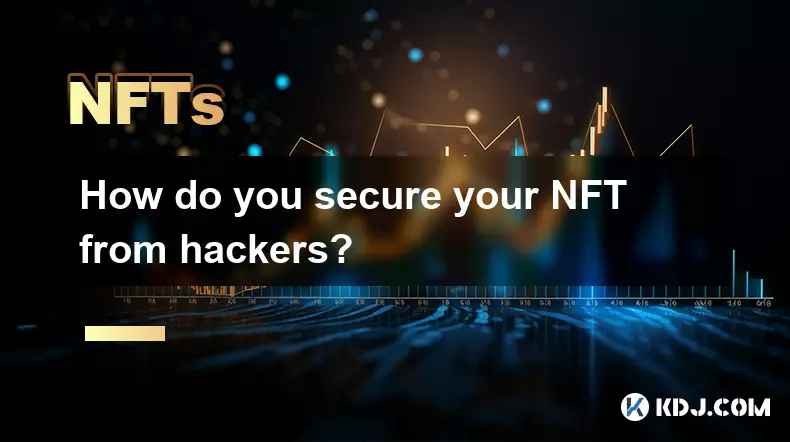
Understanding the Risks to Your NFTs
1. NFTs, or non-fungible tokens, exist on blockchain networks, which are inherently secure due to cryptographic protocols. However, the security of your NFT depends largely on how you manage access to it. Hackers often exploit weak points in user behavior rather than breaking the blockchain itself.
2. Common attack vectors include phishing scams, fake marketplaces, and compromised private keys. These methods rely on tricking users into revealing sensitive information or installing malicious software that steals wallet credentials.
3. Many users store their NFTs in digital wallets connected to online platforms. While convenient, this increases exposure to potential breaches, especially if the platform has poor security practices or suffers a data leak.
4. Another risk comes from reusing passwords across different services. If one service is compromised, attackers can use leaked credentials to gain access to cryptocurrency wallets and associated NFT holdings.
5. Social engineering remains a persistent threat. Scammers impersonate support teams or project developers to manipulate owners into transferring their NFTs or disclosing recovery phrases.
Best Practices for Securing Your Digital Wallet
1. Use a hardware wallet to store your NFTs whenever possible. These offline devices keep private keys isolated from internet-connected systems, drastically reducing the chance of remote theft.
2. Enable two-factor authentication (2FA) on all accounts linked to your wallet. Avoid SMS-based 2FA; instead, use authenticator apps like Google Authenticator or Authy for stronger protection.
3. Regularly update wallet software and firmware. Developers frequently release patches that fix known vulnerabilities, and running outdated versions leaves you exposed.
4. Never share your seed phrase with anyone. This sequence of words grants full access to your wallet. No legitimate service will ever ask for it, and storing it digitally increases the risk of compromise.
5. Limit the number of devices used to access your wallet. Each additional device expands the attack surface. Ideally, designate one secure machine solely for managing your crypto assets.
Avoiding Phishing and Fraudulent Platforms
1. Always verify URLs before interacting with any NFT marketplace or wallet service. Attackers create lookalike domains that mimic real sites to steal login details.
2. Be cautious of unsolicited messages on social media or email claiming to offer free NFTs, urgent updates, or exclusive drops. These are almost always traps designed to harvest credentials.
3. Double-check smart contract addresses when minting or purchasing NFTs. Fake collections often use similar names and metadata to deceive buyers into sending funds to the wrong destination.
4. Install browser extensions that flag known malicious websites. Tools like MetaMask include built-in protections, but third-party add-ons can provide an extra layer of defense.
5. Research the reputation of any platform before connecting your wallet. Check community forums, official Discord channels, and verified social media accounts for warnings about scams.
Managing Access and Ownership Records
1. Keep detailed records of your NFT transactions, including dates, contract addresses, and wallet interactions. This documentation helps identify unauthorized activity early.
2. Consider using multi-signature wallets for high-value NFTs. These require multiple approvals before a transfer occurs, adding a barrier against single-point compromises.
3. Revoke permissions for dApps you no longer use. Connected applications may retain the ability to move your assets even after disconnection unless explicitly revoked.
4. Monitor your wallet’s transaction history regularly. Unexpected approvals or transfers should trigger immediate investigation and security measures.
5. Store backup copies of important NFT metadata locally. While the token resides on-chain, associated images and descriptions might be hosted off-chain and vulnerable to removal or alteration.
Frequently Asked Questions
What should I do if my wallet gets hacked?Immediately disconnect the compromised device from the internet. Transfer remaining assets to a new, secure wallet generated from a fresh seed phrase. Report the incident to the relevant platform and check if transaction reversal is possible through decentralized governance mechanisms.
Can someone steal my NFT without accessing my wallet?Direct theft from the blockchain is nearly impossible due to cryptographic security. However, attackers can trick you into approving malicious contracts or transferring the NFT voluntarily through deception. The asset moves legally on-chain, making recovery difficult.
Is it safe to display my NFT collection publicly?Publicly showcasing ownership carries minimal technical risk but may make you a target for social engineering. High-profile collectors often become subjects of tailored phishing attempts aiming to exploit their perceived wealth.
Do cold wallets protect against all types of attacks?Cold wallets significantly reduce exposure to online threats but aren’t foolproof. Physical theft, loss of the device, or improper setup can still lead to asset loss. Proper handling and secure storage of recovery materials are essential.
Disclaimer:info@kdj.com
The information provided is not trading advice. kdj.com does not assume any responsibility for any investments made based on the information provided in this article. Cryptocurrencies are highly volatile and it is highly recommended that you invest with caution after thorough research!
If you believe that the content used on this website infringes your copyright, please contact us immediately (info@kdj.com) and we will delete it promptly.
- XRP Price Prediction: Weekend Rollercoaster or Rally?
- 2025-10-12 08:45:16
- Bittensor (TAO): Super Bullish Signals Point to Potential 2x Rally
- 2025-10-11 10:25:12
- Silver Price Correction: Navigating the Dip & Identifying Key SEO Keywords
- 2025-10-11 10:25:12
- Decoding Crypto Trends: Bittensor's Bull Run, Cardano's Dip, and LivLive's Presale Buzz in 'Uptober 2025'
- 2025-10-12 08:45:16
- MoonBull: The Crypto Meme Coin Promising 1000x Gains?
- 2025-10-11 10:30:01
- Crypto Payroll Revolution: Stablecoins, Altcoins, and the Future of Salary Payments
- 2025-10-11 10:30:01
Related knowledge
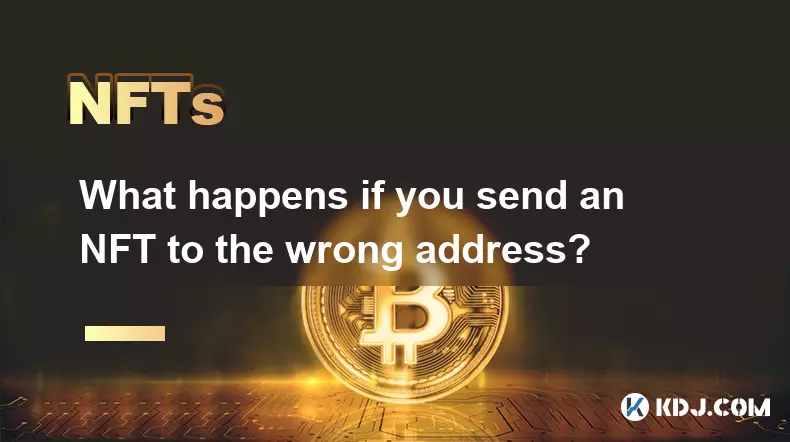
What happens if you send an NFT to the wrong address?
Oct 13,2025 at 09:17am
Understanding the Consequences of Sending an NFT to the Wrong Address1. Once an NFT is sent to a wallet address on the blockchain, the transaction is ...
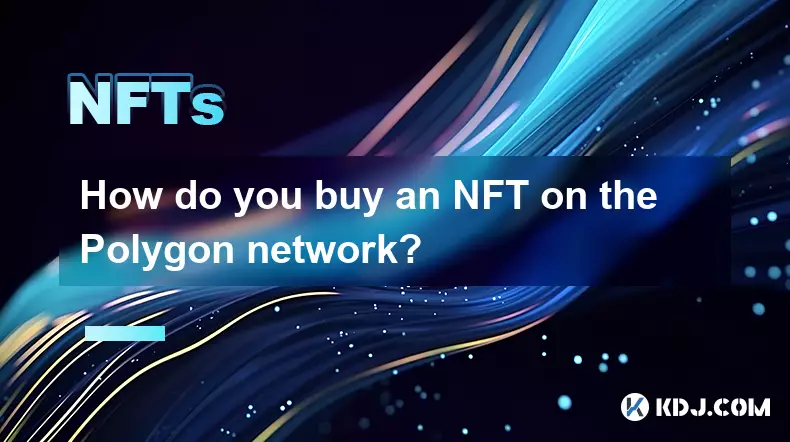
How do you buy an NFT on the Polygon network?
Oct 12,2025 at 09:54am
Understanding the Polygon Network for NFT Purchases1. The Polygon network is a Layer 2 scaling solution built on top of Ethereum, designed to reduce t...
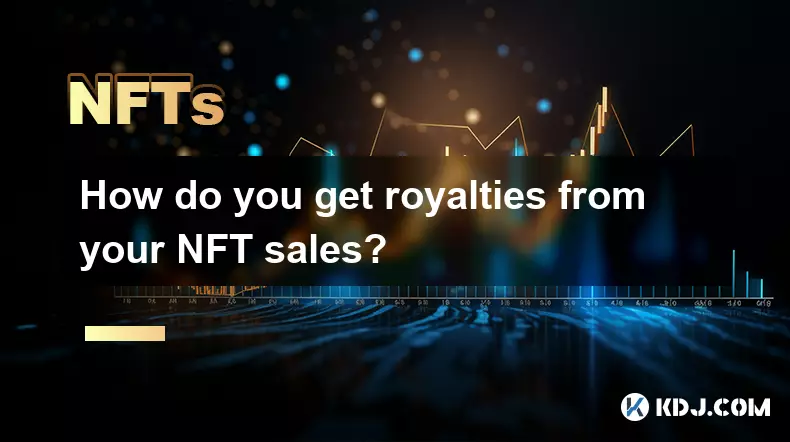
How do you get royalties from your NFT sales?
Oct 13,2025 at 02:18am
Earning Royalties Through NFT Marketplaces1. When you create an NFT, you can embed royalty terms directly into the smart contract that governs it. Thi...
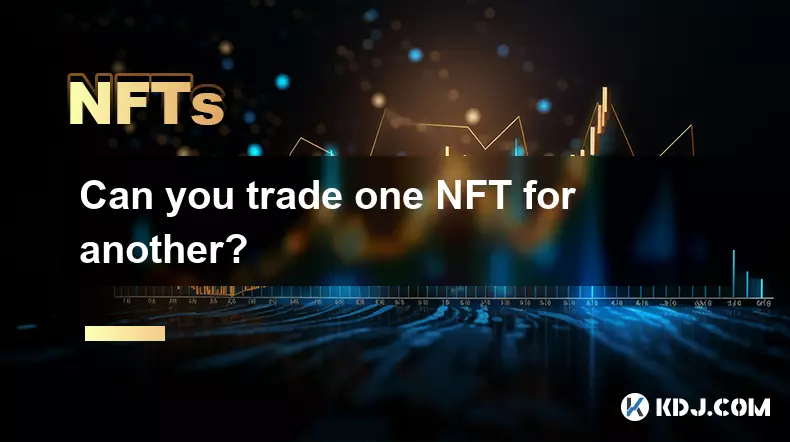
Can you trade one NFT for another?
Oct 15,2025 at 09:00am
Understanding NFT Swaps in the Digital Marketplace1. Non-fungible tokens (NFTs) represent unique digital assets secured on blockchain networks. Unlike...
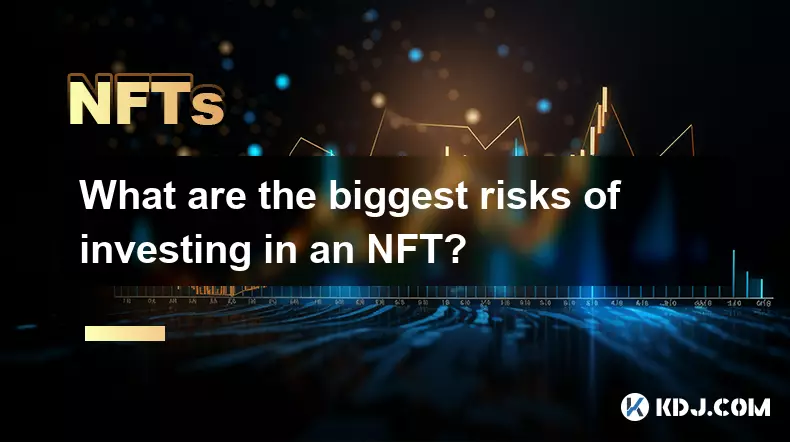
What are the biggest risks of investing in an NFT?
Oct 13,2025 at 05:00am
Volatility and Market Speculation1. NFT prices are heavily influenced by market sentiment, which can shift rapidly due to social media trends, celebri...

How do you secure your NFT from hackers?
Oct 14,2025 at 09:01pm
Understanding the Risks to Your NFTs1. NFTs, or non-fungible tokens, exist on blockchain networks, which are inherently secure due to cryptographic pr...

What happens if you send an NFT to the wrong address?
Oct 13,2025 at 09:17am
Understanding the Consequences of Sending an NFT to the Wrong Address1. Once an NFT is sent to a wallet address on the blockchain, the transaction is ...

How do you buy an NFT on the Polygon network?
Oct 12,2025 at 09:54am
Understanding the Polygon Network for NFT Purchases1. The Polygon network is a Layer 2 scaling solution built on top of Ethereum, designed to reduce t...

How do you get royalties from your NFT sales?
Oct 13,2025 at 02:18am
Earning Royalties Through NFT Marketplaces1. When you create an NFT, you can embed royalty terms directly into the smart contract that governs it. Thi...

Can you trade one NFT for another?
Oct 15,2025 at 09:00am
Understanding NFT Swaps in the Digital Marketplace1. Non-fungible tokens (NFTs) represent unique digital assets secured on blockchain networks. Unlike...

What are the biggest risks of investing in an NFT?
Oct 13,2025 at 05:00am
Volatility and Market Speculation1. NFT prices are heavily influenced by market sentiment, which can shift rapidly due to social media trends, celebri...

How do you secure your NFT from hackers?
Oct 14,2025 at 09:01pm
Understanding the Risks to Your NFTs1. NFTs, or non-fungible tokens, exist on blockchain networks, which are inherently secure due to cryptographic pr...
See all articles
























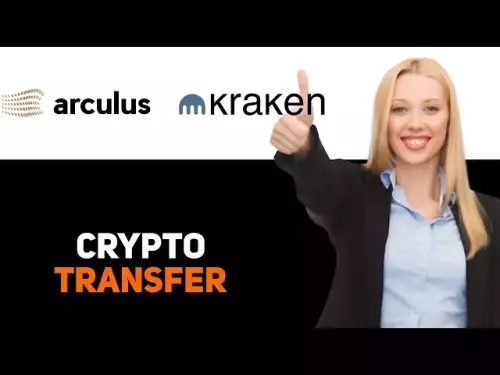
![[4K 60fps] Prisma by novichokk (1 Coin) [4K 60fps] Prisma by novichokk (1 Coin)](/uploads/2025/10/14/cryptocurrencies-news/videos/k-fps-prisma-novichokk-coin/68ee49804ba00_image_500_375.webp)
















































